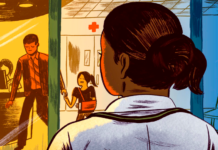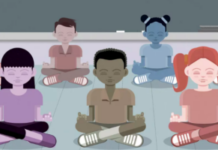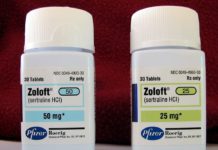Study Examines Who Gets Recruited for Psychosis Research
Study examines who gets approached and who gives consent for research on psychotic disorders.
United Nations Rep Brings Attention to Human Rights Violations in Psychiatry
Dr. Dainius Pūras argues that the status quo in mental health treatment is no longer acceptable and demands political action to promote human rights.
The Promise of LSD Microdoses and Other Psychedelics
In this interview for Scientific American, psychiatrist John Halpern discusses some of the potentially therapeutic effects of peyote, ayahuasca, psilocybin, MDMA and other psychedelics.
"Once when...
What Would Real Informed Consent on Psychiatric Drugs Look Like?
Reforming the process of real informed consent can be brought to the horizon sooner rather than later if we have a solid idea of what the provision of truthful, unbiased research-based information about psychiatric medications should look like. Our upcoming series of webinars for 2019 will focus on just that.
Antidepressants Increase Risk of Death, Study Finds
Antidepressants are commonly considered safe and effective treatments. However, research has questioned their efficacy, and now, their safety.
Ohio Attorney General Sues Prescription Opioid Manufacturers
Ohio Attorney General Mike DeWine has filed a lawsuit against five leading prescription opioid manufacturers and their related companies in Ross County Court of Common...
Trust Falls – Are We in a New Phase of Corporate Research?
From The Scholarly Kitchen: We may be in a new phase of corporation-funded research. According to the 2016 Science & Engineering Indicators from the National...
Mental Health Industry Should Embrace Choices Beyond Drugs
In this video for NowThis, Yana Jacobs critiques the mental health industry standard of prescribing drugs as the first-line treatment for "mental illness." She emphasizes...
Ethical Failings in Experimental Drug Safety Trials
Leading human subjects ethics researcher questions exploitation of uninsured minorities in experimental drug trials.
We Need to Encourage People to Make Advance Directives
In this piece for STAT, Jennifer Adaeze Okwerekwu describes the value of psychiatric advance directives for those at risk of experiencing an emotional crisis.
"'It’s something that can...
Psychiatrists Overestimate Antidepressants, Underestimate Placebo
Recent meta-analyses of antidepressant clinical trials have revealed that up to 82% of the effects associated with the drugs may be attributed to placebo and non-medication factors. A new study examined the attitudes of psychiatrists toward these non-pharmacologic factors and found a large discrepancy between their beliefs and the empirical evidence.
Suicide Rates Rise While Antidepressant Use Climbs
Multiple media sources are reporting on new data from the CDC revealing a substantial increase in the suicide rate in the United States between 1999...
Preventing Long-term Benzodiazepine Use
Researchers Identify risk factors for long-term benzodiazepine use to prevent harmful effects.
Do Antidepressants Work? A People’s Review of the Evidence
After a meta-analysis of RCTs of antidepressants was published in Lancet, psychiatry stated that it proved that "antidepressants" work. However, effectiveness studies of real-world patients reveal the opposite: the medications increase the likelihood that patients will become chronically depressed, and disabled by the disorder.
Update: Massachusetts Benzodiazepine Bill Hearing
The hearing for Bill H4062: Informed Consent for Benzodiazepines and Non-benzodiazepine Hypnotics took place on Monday – in the middle of an April snowstorm! The discussion clarified some important points in the legislation and gave survivors an opportunity to tell their stories. I was so proud to be there and witness the courage, camaraderie, resilience, advocacy, and vulnerability of fellow survivors. This legislation is our chance to be heard. As one survivor said, through tears, to the committee, “Do not let my suffering be in vain. I beg you to pass this bill.”
Is Mindfulness Meditation Good for Kids?
From Vox: Mindfulness-based interventions are increasingly being introduced in schools and touted as helpful methods of reducing students' anxiety and attention problems. However, the research...
If a Drug Company Publishes a Magazine, is it Journalism?
From Undark Magazine: Bayer, the German pharmaceutical and agricultural science conglomerate, has launched a digital magazine covering the ethical and social implications of new biotechnologies....
Increased Risk of Movement Disorders From Antipsychotics in Persons with Intellectual Disabilities
Large cohort study demonstrates that those with an intellectual disability are at an increased risk for movement disorder side effects of antipsychotics.
Researchers Challenge Interpretation of Antidepressant Meta-analysis
Researchers question the overstated results of a large antidepressant meta-analysis and point to cultural pressures to turn to these drugs for a quick fix.
Collaboration with Consumers of Mental Health Services Improves Quality and Value of Research
A new study examines the benefits of collaborating with mental health consumers in research.
“Punish People, Not Just Corporations”
Drug makers have faced large fines for unethical and harmful practices but have simply treated these as a cost of doing business. Ed Silverman reports...
Mad Pride: Making a Truce With the Voices in Your Head
In this piece for Vice, Tess McClure describes New Zealand's Mad Pride movement, a movement that seeks to destigmatize, normalize, and celebrate experiences of voice-hearing...
Experts ‘In Denial’ Over Withdrawal Harm From Prescription Pills
From The Herald: MSP (Member of the Scottish Parliament) Michelle Ballantyne has spoken out about the epidemic of withdrawal effects of prescription pills, critiquing physicians'...
WSJ Hosts Debate on Depression Screening
The U.S. Preventive Services Task Force (USPSTF) recently issued a controversial recommendation that all adolescent and adult patients undergo depression screening in primary care. The...
Group Plans Protest Against the World Congress of Psychiatry
The International Association Against Psychiatric Assault (IAAPA) plans to protest against the World Congress of Psychiatry this October. The IAAPA considers it a "provocation"...






























